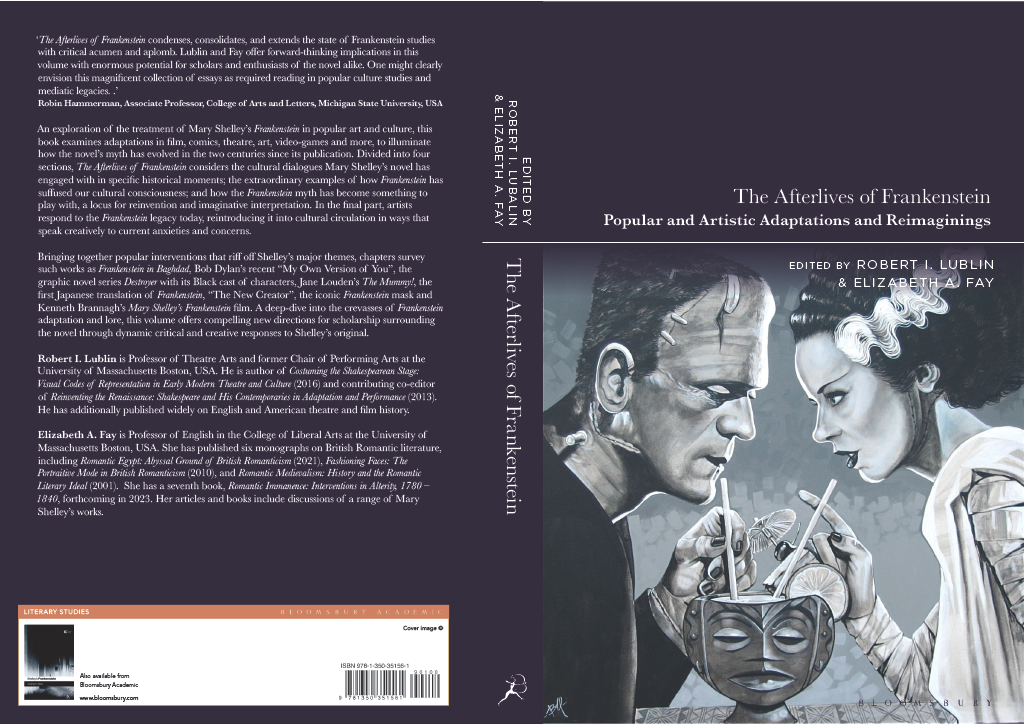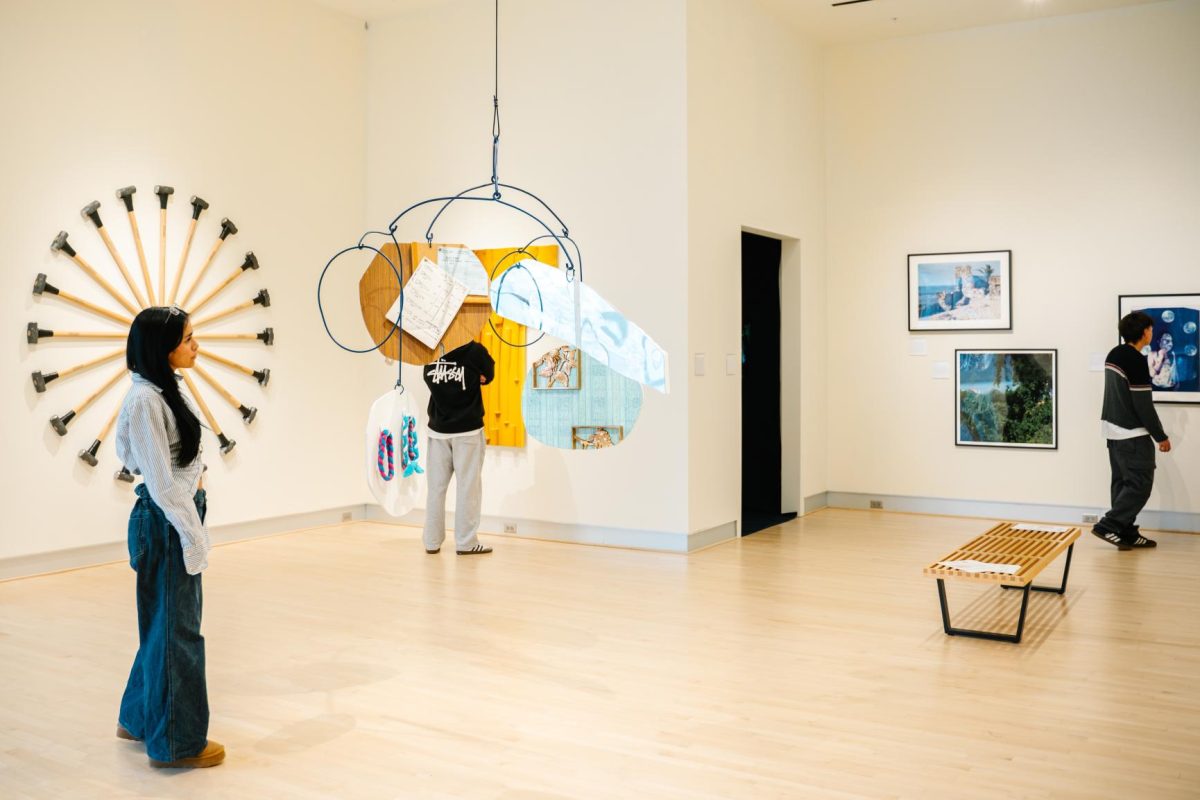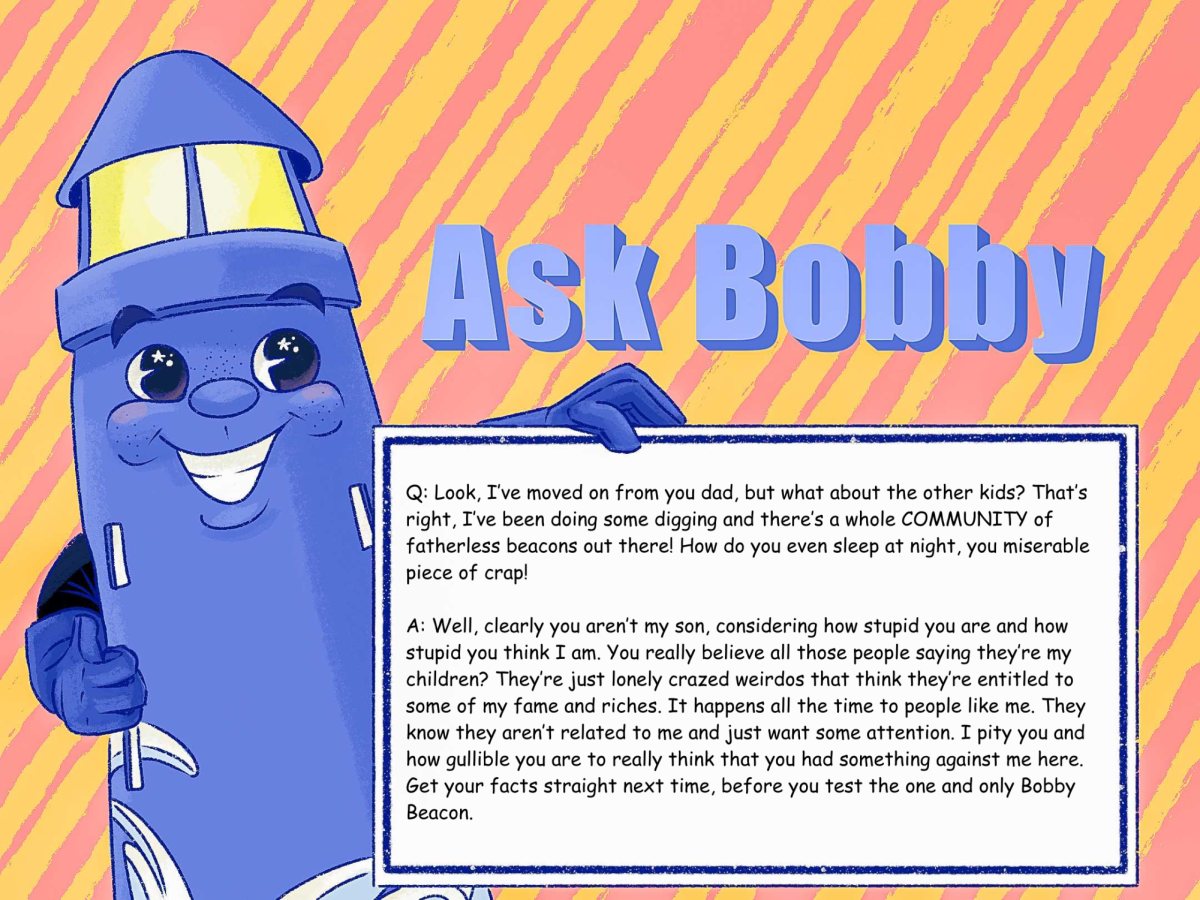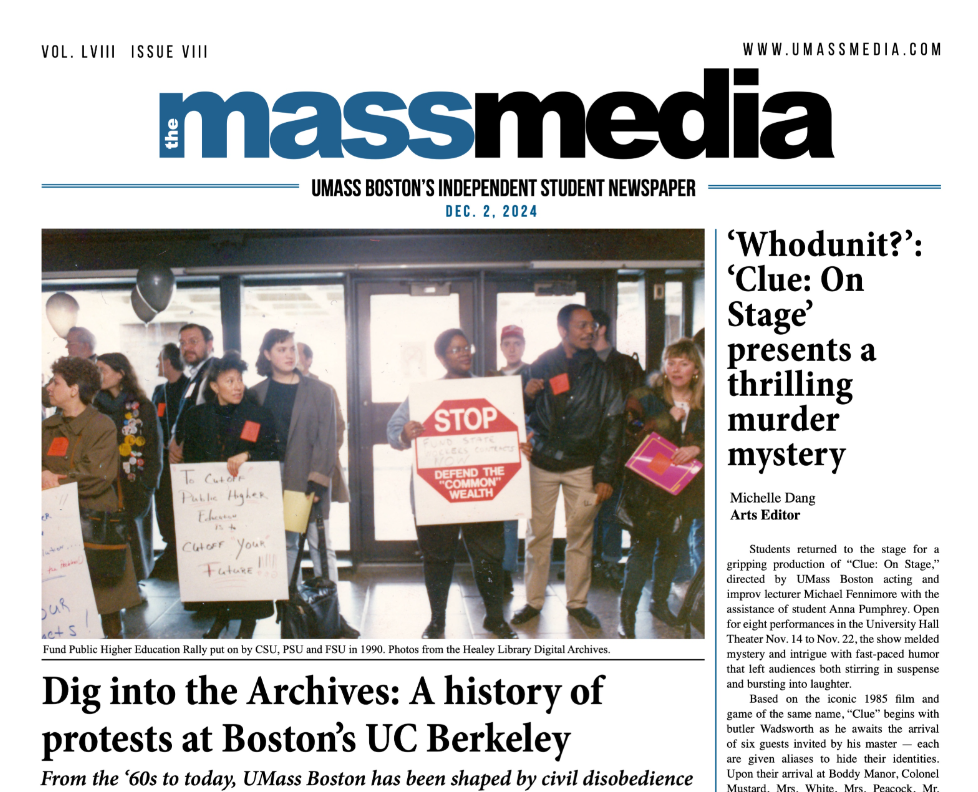Hell, But With Antique Furniture
April 21, 2009
We think we know that Hell is fire and brimstone, burning hot pokers, little men with tails, goatees and horns, but what if it was far worse? The recent student run production of “No Exit” by French existentialist Jean-Paul Sartre explores the author’s imagining of what constitutes real punishment and who deserves it. An ambitious undertaking for a group of students working unaided, the cast and crew, under the careful direction of organizer Natasha Pratt, managed to take the heavy subject matter put forth by Sartre and feed it to the audience in a way that was light and entertaining from start to finish.
This show is an interesting one, because unlike a big musical or Shakespeare play, the action is entirely character driven and requires very little in the way of props or intricate staging to be effective. In fact, the cast consists of only five actors (one of whom plays a silent statue), and the set consists of only a few pieces of furniture, leaving the focus entirely on the complex dynamic between the characters and Sartre’s brilliant dialogue. As the play is set in an unadorned room with no windows and no doors, McCormacks Blackbox Theater made an excellent stage and allowed for a stoicism that stayed true to the existentialist tradition. In fact the original French title of the play, Huis Clos, can be translated as “behind closed doors”.
The plot focuses around three characters who are all delivered by the mysterious “Valet” into a sparse room that the audience soon finds out is meant to represent Hell. At first the characters all wonder when their torturer is to arrive, but after some probing and examination, the three come to find that each other’s very presence is the worst punishment they could possibly deserve.
The first to enter is Garcin (Jeff Ruel), a newspaperman who is led into the room by the mysterious black-clad figure known as “Valet”. Garcin seems unsurprised as to his location, but begins to wonder as to the specifics when he ends up in a “second-century drawing room” rather than a lake of fire. Valet, played with great gravitas and flat affect by Jonathan O’Toole, answers all of Garcin’s questions in a manner that is both calm and smug, but sinister enough to remind us of where we really are.
Garcin is soon joined by Inez (Annie Sheret), a lesbian postal worker with a coy seductiveness and a mischievous grin, and soon after by Estelle (Gabrielle Ciambrone), a stunning woman of high society whose naiveté masks a superficial and materialist monster. Over the rest of the play, these three characters reveal more and more about the people they were and what they did to land themselves in Hades, wrenching revelations from each others souls and riddling each other with piercing truths.
Garcin, who seems to stand on principle, is revealed to have been an inconsiderate coward who fled rather than stay and fight the good fight and is mercilessly picked apart by Inez, who he passionately hates. Inez, self-admittedly cruel and unfeeling, spent her final days on earth seducing her cousin’s wife and poisoning her against him, eventually causing the poor man’s murder. While she is at times wistful about her mortal life, she seems resigned to her fate and not entirely surprised to be where she ended up. The final occupant of the room is Estelle, a seeming innocent and attractive young woman who married an older man for money, only to cheat on him with a younger man who loved her deeply but who she only valued for his looks. Her murder of the couple’s illegitimate child eventually led to her lover’s suicide, damning her to eternity.
While Inez pursues the lovely and demure Estelle, Estelle pursues the manly Garcin to feed her need to possess, while he in turn sees her caring as validation of his virtue. Inez meanwhile will not allow Garcin to forget the cowardly deed, that is supposedly against all he says he stands for, that brought him to the underworld and Estelle cannot give him what he really needs and clear his conscience. Garcin eventually comes to believe that his salvation can only come from Inez, who truly understands his weakness, foiling Estelle’s plans and robbing of the male attention that sustained her.
As the play draw to a close, each character fully realizes the true nature of the torture that they have been sentenced to. As Garcin declares in a line that is one of the most famous Sartre ever wrote: “Hell is not burning hot pokers, Hell is other people”.
For Pratt, the director and driving force behind the production, this play has always held a special place because of its connections to so many things outside of the realm of theater and fantasy.
“As a real student of theater, I think it’s really important to be interested in different subject matter. I read Sartre in high school in a philosophy class and absolutely fell in love with him. I really loved the character dynamic and I thought the commentary on heaven and Hell was fascinating. I always really wanted to play Inez, but thought that the best way I could contribute to the theater gods was through directing.”
“It was also really interesting doing research into the play, because it really explored a lot of issues in the worlds of gender studies, psychology, and philosophy.”
Sartre’s nuanced and complex ideas are not always easy as some to communicate to the audience, but the talented cast, who were allowed a great deal of freedom in determining how to play their characters, didn’t miss a beat in conveying the depth of despair and anguish rife in each character.
Overall, this trip to Hell is not one soon to be forgotten and one that this reviewer wouldn’t mind repeating.









































































